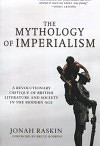In The Diary of a Young Girl—one of the most touching books ever written about life under fascism—Dutch teenager Anne Frank observed, “Extraordinary things happen to people who go into hiding.” Published in 1947 with an introduction by Eleanor Roosevelt, Frank’s diary awakened the world to the daily lives of Jews hoping to escape concentration camps and gas ovens. Frank’s story was sentimentalized on stage and in the Hollywood movie, but the book itself resonated—it still does—with gritty realism and the kinds of details that just will not die.… That same year, 1947, saw the publication of Every Man Dies Alone, the last novel to be written by Hans Fallada, the lost man of twentieth-century Germany literature. Like Frank’s Diary, Fallada’s Every Man alerted readers around the world to the corrosive force of fascism and the extraordinary things that happen to people in hiding. The main characters are not Jews; they are neither religious, nor do they spout Marx, Engels, or Rosa Luxemburg. Every Man presents a series of interwoven narratives about fascism that do not echo the dominant stories that have been told and retold since the end of the Second World War. | more…
Qiu Xiaolong’s Novels on the Cusp of Communism and Capitalism
The books reviewed here are Qiu Xiaolong, Death of a Red Heroine (2000), 464 pages, $14.00; A Loyal Character Dancer (2002), 360 pages, $14.00; When Red Is Black (2004), 320 pages, $13.00, all published in New York by Soho Crime; and A Case of Two Cities (2006), 320 pages, $13.95; Red Mandarin Dress (2007), 320 pages, $13.95; The Mao Case (2009), 304 pages, $13.99, all published in New York by Minotaur Books.
Qiu Xiaolong—the prolific Chinese novelist born 1953 in Shanghai and a resident of the United States since 1988—has made a fetish of the word and the color red, not surprisingly, since he writes about Red China. Three of his innovative novels include red in the title: Death of a Red Heroine (2000), When Red Is Black (2004), and Red Mandarin Dress (2007). In all three of these books, the main character is a sensitive, poetry loving, yet tough-minded police inspector who works for the Shanghai Police Bureau; he’s on the city payroll and doesn’t work as a free-lance private eye for hire | more…
Eduardo Galeano, who was born in Uruguay in 1940, has written big, thick books. Open Veins of Latin America (1973), which Hugo Chávez of Venezuela handed to Barack Obama in May, hoping it would teach him history, is more than 300 pages. Then there’s Galeano’s Memory of Fire Trilogy: Genesis, Faces & Masks, and Century of the Wind that adds up to nearly 1,000 pages. More recently, he has written shorter books, and practiced a kind of ecology of the word. Mirrors, his newest work, contains more than one hundred short entries about almost everything — from salt to maps and money, and almost everyone, from Cleopatra to Alexander Hamilton and Che Guevara. None of the entries is longer than a single page. Not surprisingly, Galeano’s answers to the questions in this interview are pithy, poetic, humorous, and sometimes oblique. “I’m fighting word inflation, which in Latin America is worse than monetary inflation,” he says. “I try to say more with less — because less is more.” -J.R. | more…
Mao Zedong, The Poems of Mao Zedong, translations, introductions, and notes by Willis Barnstone (Berkeley: University of California Press, 2008); 168 pages; $24.95 hardcover, $15.95 paperback.
What are we to think of Chairman Mao? A man of immense contradictions — a nationalist, communist, revolutionary, warrior, as well as the author of The Little Red Book, and the leader for decades of the Peoples’ Republic of China — he was also one of twentieth-century China’s best poets. A new translation of his work provides an opportunity to evaluate him as a writer and as an artist. A reviewer in The Washington Post called Mao’s poems “political documents,” but added, “it is as literature that they should be considered.” Separating the political from the literary, however, isn’t possible. “We woke a million workers and peasants,” Mao wrote in the First Siege, and though all his lines aren’t as explicit about the Chinese Revolution as it is, a great many of them are. | more…
Bad times inhibit good writers, but they also inspire them. Just look at the new and recent arrivals in bookstores and libraries. The double-barreled assault on civil liberties and human rights, by the administration of President George Walker Bush, has, if nothing else, spurred an outpouring of books, both fiction and nonfiction, condemning the erosion of American democracy and the perceived drift toward totalitarianism. Jack London—the best-selling twentieth-century American author, who was born in 1876, the year of the American Centenary, and who died in 1916, the year before the United States entered the First World War—would surely not be surprised. In fact, one might well anoint London the founding father of the contemporary body of literature about political repression, including Henry Giroux’s The Emerging Authoritarianism in the United States, Matthew Rothschild’s You Have No Rights, Chris Hedges’s American Fascists, Robert Kennedy Jr.’s Crimes Against Nature, and Philip Roth’s disquieting 2003 novel The Plot Against America. Of course, there are many others that cover much the same terrain. | more…

“We, the readers and students of literature, have been hijacked. The literary critics, our teachers, those assassins of culture, have put us up against the wall and held us captive.” So begins Jonah Raskin’s The Mythology of Imperialism. When first published in 1971, this book was nothing short of a call to arms, an open revolt against the literary establishment. In his critique of five well–known British writers—Joseph Conrad, Rudyard Kipling, D. H. Lawrence, E. M. Forster, and Joyce Cary—Raskin not only developed the model for a revolutionary anti–imperialist criticism, but, through this book’s influence on Edward Said, helped usher in the field of postcolonial studies. | more…
